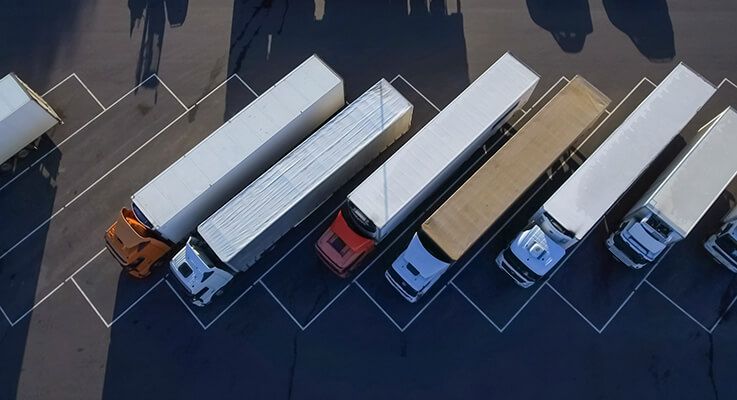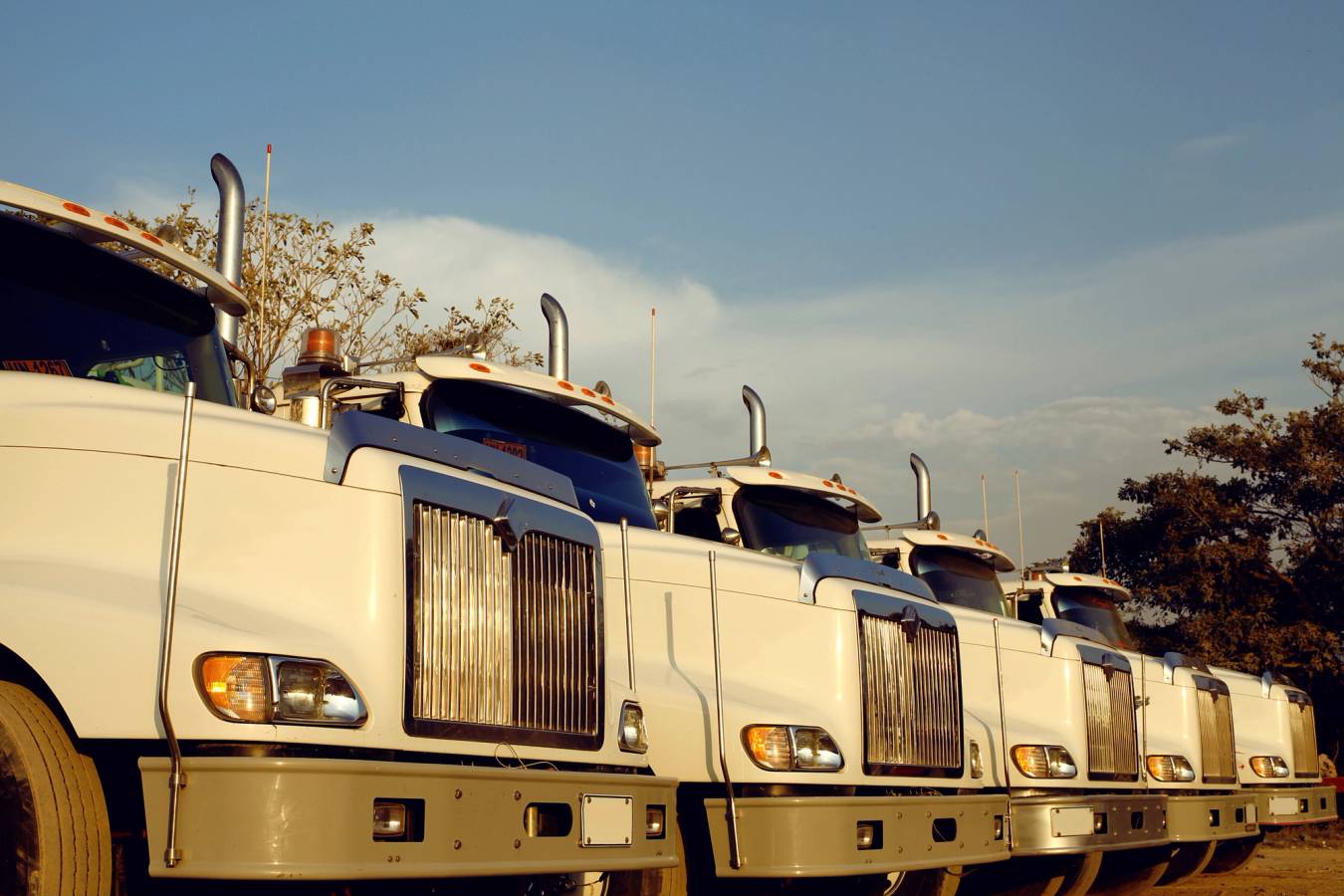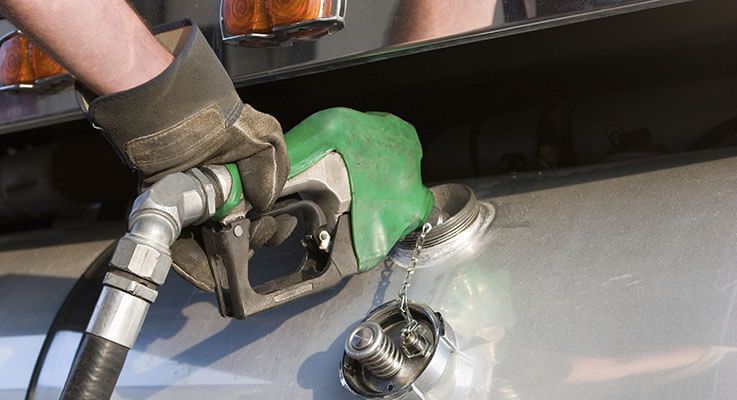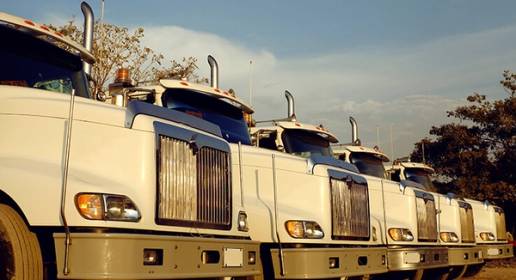Blog

What You Should Know about a Semi Truck Lease vs. Purchase
General
Getting started as an independent truck owner can sometimes be a herculean task, especially when you consider the substantial amount of money that is required to get started in the business. Perhaps at this stage, you are stuck between leasing a truck vs. buying a truck as you are evaluating your finances as well as the advantages of each option.
What Does Leasing a Truck Entail?
Simply put, trucks are quite expensive; therefore, only a few people can start off as independent owner operator truckers with trucks they own. However, your financial constraints should not stop you from going into the business as you can explore the option of leasing a truck. When it comes to leasing a truck, you can lease either from independent equipment leasing company or lease from a carrier with the possibility of buying the truck at the end of your lease contract.
A truck lease is a contractual agreement between an individual (lessor) and a semi truck leasing company (lessee) that allows the individual to make use of the truck for an agreed upon period of time known as the lease term. During this time, the individual is obligated to pay the leasing company a stipulated amount of money at an agreed upon interval (usually monthly). The independent truck driver usually has the options to buy the truck outright, sign another lease agreement or return the truck when the lease term ends (see contract for further detail as one or more of these options may not be available depending on the company).
When considering leasing a truck vs. purchasing one, a significant advantage of leasing a semi truck is that it requires less commitment. Unlike when you buy a truck, and you have to protect your investment, semi truck lease allows you to end your venture into independent truck ownership anytime (you may have to pay a fee to end your contract early, but this is a much better option than buying a truck and realizing that independent ownership isn't for you). Therefore, leasing a truck is highly recommended for those that are testing waters of independent truck ownership. This form of flexibility and limited commitment cannot be enjoyed by those that choose to go the option of buying a semi.
Furthermore, the cost of owning a truck goes beyond the initial price tag you see for purchasing the vehicle as you will soon see. There are hidden costs, some of which include the cost of ongoing repairs and maintenance of the truck, cost having a maintenance shop, cost of recruiting and retaining drivers and maintenance staffs, fines that may be incurred due to violations of safety regulations, taxes and licensing, and cost of substitute vehicles. When you lease a truck, you can have these extra costs taken care of by the leasing company (you still pay for some of these in fees, but often times you will save money on these extra costs when leasing). If you don't have the startup capital available to buy the truck in its entirety, then this is the best option for you.
As far as the debate over leasing a truck vs. buying a truck is concerned, leasing a truck offers more advantages when down payments are considered. With truck leasing, less upfront cash is required as the truck is only given out to you based on the monthly lease payments that you will be making.
Despite the several advantages of leasing a truck, it does have some disadvantages. Foremost, you do not have any assurance of ownership and, as such, the truck is not your asset. Also, you aren't accruing any equity for yourself on the vehicle as you make payments because it is owned by the leasing company. It is also worthwhile to know that leasing a truck attracts higher insurance rates; so, you pay more to insurance when you lease a semi truck than when you purchase it.
Tips for Leasing Trucks
If you would like to lease a truck, here are some tips that can help you:
Compare different lease deals
You will do yourself a disservice if you do not take time to compare different lease deals. By comparing different lease deals, you can see the ones that offer the best values and will be most beneficial to you in the long run. When comparing offers, pay close attention to the buy-out options, maintenance terms, and the restrictions, such as mileage limitations, that any of the leasing companies have attached to their contracts. For better comparison, you can ask an attorney or accountant to help you before deciding which one to go with. Lastly, ensure that your lease term is as short as possible (shorter terms mean you pay more each month but you will not be stuck in the contract for too long) for what you can afford.
Understand the conditions of terminating the lease term
Before you sign any contract, you should make sure that you have a clear understanding of the conditions upon which you can terminate the lease. There are always certain penalties or fees to getting out of the lease before the agreed upon time. If you don't want to have to pay these fees, make sure you are ready to be in the lease for the period of time which you agreed, or that you will be able to cope with these penalties to get out of the lease.
What Does Purchasing a Truck Entail?
Purchasing a truck is just like mortgaging a home; you have full ownership rights over the truck once you have paid for it. Consequently, you enjoy the benefits of building equity with the money you pay on the truck every month. Once you've paid of the loan, as the outright truck owner, you can either use the equity gained from owning the truck to trade it for a new truck or continue driving the truck for as long as you want. When semi truck lease vs. purchase is considered from the financial viewpoint, buying a semi truck is more beneficial than leasing due to equity it provides and because it often ends up being cheaper than leasing in the long run. This doesn't come without its drawbacks however; purchasing a semi outright is a seemingly impossible financial venture for most people, and if you don't have a credit score above 700 then getting a loan is going to be a very difficult task.
Nevertheless, owning a truck is capital-intensive as well. Basically, the purchase of a truck can cost as much as $100,000 depending on the models, and when other financial obligations are factored into the cost, you may have to spend more than $150,000 on buying a truck.
Some of the hidden costs that are associated with ownership of semi truck are:
- Cost of ongoing repairs and maintenance of the truck
- Cost of maintenance of the maintenance shop
- Cost of recruiting and retaining drivers
- Cost of recruiting and retaining maintenance staffs
- Fines that may be incurred due to violations of safety regulations
- Tax and licensing
- Cost of substitute vehicles
- Cost brakes, tires, and other consumables
If after debating leasing a truck vs. buying a truck, you have decided that purchasing one is the option best suited to you,
Here Are Some Tips to Keep in Mind for Purchasing a Truck:
Spec the truck you want to buy
Before starting your search for a new or used truck, you should make up your mind about the specifications of the truck you want to buy. A few of the things that must be considered before buying a truck are:
- Engine
- Body style
- Transmission
- Weight
- Rear end ratio
- Tire sizes and styles
- Accessories
- Mileage
Check its fuel economy
Fuel cost is one of the running costs of using your trucks; therefore, you want to be certain that you can save money on this. So, you should try to pick out a truck that has a good fuel economy.
Consider its maintenance costs
Whether you are buying a new or used truck, the truck will always require maintenance from time to time. Therefore, go for a truck with low maintenance costs because it will help you get a better return on your investment.
Pay attention to all details
If you are buying used trucks, you must pay attention to the little details that are capable of making or breaking your investment. From the maintenance history to mileage, ECM reports, ownership history, accidents, and insurance claims, all details of the truck must be duly examined before buying it. Running a VIN check online can help you get some of these details about the truck.
Inspect the truck
After you have found the truck that suits your needs and preferences, it is time you inspected it. Hire a well-qualified mechanic to help you conduct a bumper-to-mudflap inspection of the truck.
Conclusion
Whatever you decide, whether it is leasing or buying, it is important to be certain of what you are getting into so as to avoid any unpleasant surprises that put business in jeopardy. We hope that this article has helped you become more informed when it comes to whether you should lease a semi-truck or buy one.

Noel Ballon
Noel Ballon is a skilled personal finance writer passionate about helping people to succeed financially.
As a guest writer for CASH 1, Noel has shared his knowledge on a variety of financial issues, including budgeting, saving, investing, and retirement planning
Noel has a background in economics and finance with over five years of experience writing in the financial sector.
He works to simplify complicated financial ideas so that people from every area of society may understand them.
When Noel isn't writing, he likes keeping current on the latest financial sector changes and looking for fresh approaches to assisting people in choosing wise financial decisions.





